Imagine the pulse of innovation beating from the heart of the West Coast. Los Angeles isn’t just the City of Angels—it’s a thriving launchpad for some of the most groundbreaking ventures in the tech world.
Nestled within the vibrant surroundings of Silicon Beach, Los Angeles startups have become synonymous with disruptive ideas and fearless entrepreneurship.
This article is a deep dive into LA’s startup ecosystem, from the sun-drenched offices of aspiring entrepreneurs to the bustling boardrooms of seasoned investors.
Whether you’re a determined founder or an avid tech enthusiast, you’ll find value here.
By the time you swap coasts or tabs, you’ll have a bird’s eye view of what makes Los Angeles startups a magnetic hub for business mavens and how they weave through the challenges of the startup lifecycle.
Fasten your seatbelts; we’re about to lift off into LA’s innovation ecosystem.
Los Angeles Startups
| Startup | Industry | Founding Year | Founders | Notable Products/Services |
|---|---|---|---|---|
| Buck Mason | Clothing | 2013 | Sasha Koehn, Erik Schnakenberg | American-made menswear |
| Afterparty | Event Platform | 2021 | David Fields, Zach White | NFT access to events |
| Riot Games | Video Games | 2006 | Brandon Beck, Marc Merrill | League of Legends, Valorant |
| Mothership | Freight Tech | 2015 | Aaron Peck, Artur Zawadowski | Freight shipping automation |
| Kernel | Neuroscience Tech | 2016 | Bryan Johnson | Brain-recording technology |
| Autograph | NFT Platform | 2021 | Dillon Rosenblatt, Tom Brady | Digital collectibles, NFTs |
| Flowspace | Logistics | 2017 | Ben Eachus, Jason Harbert | Warehousing and fulfillment services |
| Nasty Gal | Fashion Retail | 2006 | Sophia Amoruso | Women’s fashion retail and accessories |
| Ruth Health | Telehealth | 2021 | Alison Greenberg, Arielle Milkman | Women’s health services |
| Epirus | Defense Tech | 2018 | Bo Marr, Grant Verstandig | High-powered microwave technology |
| Blavity | Media | 2014 | Morgan DeBaun, Jeff Nelson, Aaron Samuels, Jonathan Jackson | Platform for black culture & stories |
| Endpoint | Real Estate Tech | 2018 | Scott Martino | Digital title and escrow services |
| The Black Tux | Fashion Rental | 2013 | Andrew Blackmon, Patrick Coyne | Men’s suit and tuxedo rental |
| Whatnot | Live stream shopping | 2019 | Grant Lafontaine, Logan Head | Live stream auctions and shopping |
| Swimply | Pool Sharing Economy | 2018 | Bunim Laskin, Asher Weinberger | Online platform to rent swimming pools |
| VideoAmp | Advertising Tech | 2014 | Ross McCray, Vincent Yang | Cross-screen ad measurement |
| Tapcart | Mobile Commerce | 2019 | Eric Netsch, Sina Mobasser | Mobile app builder for e-commerce |
| Divergent 3D | Automotive Tech | 2014 | Kevin Czinger | 3D printed vehicle technology |
Buck Mason

In 2013, Sasha Koehn and Erik Allen Ford, who were neighbours in Venice, California, launched Buck Mason, a contemporary American brand. The relaxed Californian culture of easy living, quality, and simplicity is at the core of everything they do. They are timeless.
Their first location was a 350 square foot garage off Abbot Kinney Boulevard. Concerned with quality, they collaborated closely with a nearby family firm to produce items in small batches, hand-making each one utilising traditional manufacturing methods and cutting-edge technology. By designing each item to last for more than one season, Buck Mason simplifies the intricate world of fashion. Each pattern is a play on a traditional American piece, and together they provide a practical and easy wardrobe.
Afterparty

The California-based digital business Afterparty is the first startup on the list of ones to watch in 2022. It is hard at work building a home for the creatives, including musicians, collectors, and artists. Web3, also known as the semantic web, is the digital platform that enables users to combine token-based economies with blockchain technology.
The platform was created by Afterparty to help creators manage their NFT (non-fungible token) collections and forge connections with their followers. Dan Rahmel, David Fields, and Eytan Elbaz started Afterparty in 2021, making it a relative newcomer to the digital startup scene.
Riot Games
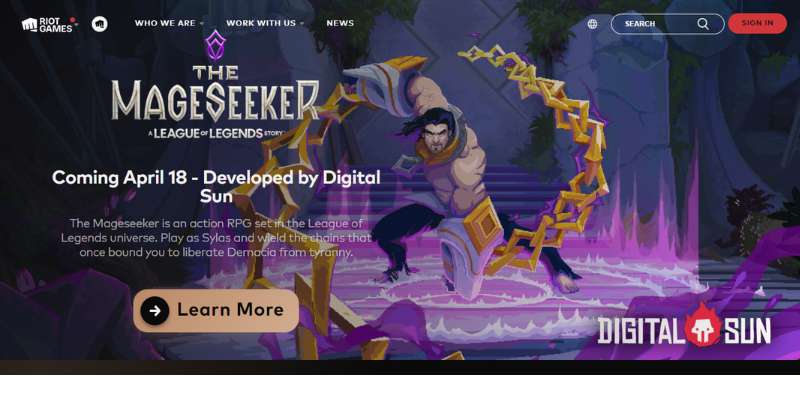
A US-based company called Riot Games creates internet video games. In order to create, release, and support the games with the greatest player focus available, Riot Games was established in 2006. League of Legends, their initial game, received recognition all over the world when it was published in 2009. League has since become the most popular PC game in the world and a major factor in esports’ exponential rise.
League of Legends is now in its second decade, and developers are working on a number of projects, including Teamfight Tactics, Legends of Runeterra, VALORANT, League of Legends: Wild Rift, and others, to keep the game fresh and provide fans new experiences.
Mothership
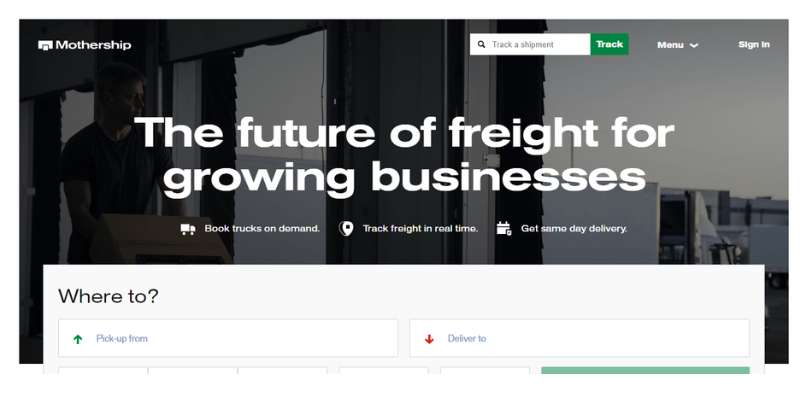
For last-mile delivery, Mothership is a freight marketplace that links shippers with nearby truckers. The service not only provides same-day local transit but also rapid online quotes and real-time cargo tracking for businesses. Mothership, which was established in 2017, is expanding swiftly. The business, which has more than 40 staff members, just relocated into a new location in the Culver City arts district.
Kernel

Kernel is a LA-based firm that was established in 2016. The business focuses on studying and creating new, more practical brain-recording devices that are equally accurate and efficient as their more intrusive predecessors.
It specialises in the neurosciences area of medicine. Since its founding, the business has successfully raised $107 million from six investors during two startup funding rounds, with the most recent one occurring in July 2020. The first product from Kernel is currently being developed for commercialization and is planned to go on sale in the upcoming years.
Autograph
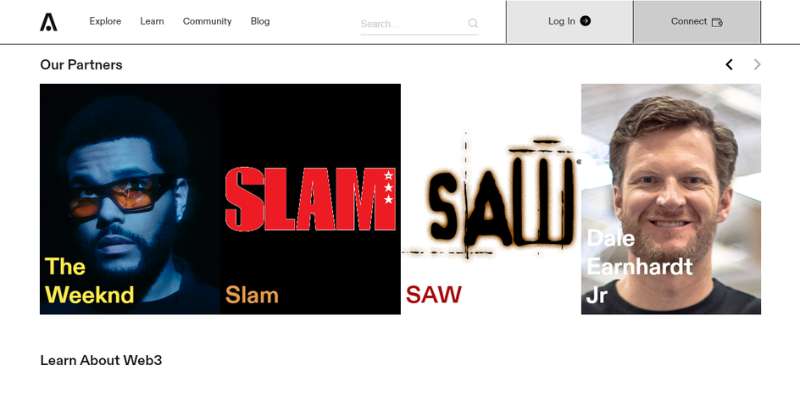
The most recognisable companies and illustrious figures in sports, entertainment, and culture come together on the NFT platform called Autograph to produce one-of-a-kind digital collections and experiences for people all over the world. Autograph, a Los Angeles-based company co-founded by Tom Brady, is ushering in a new era of collecting with a streamlined and open process, genuine and innovative items, and unique partnerships.
Flowspace
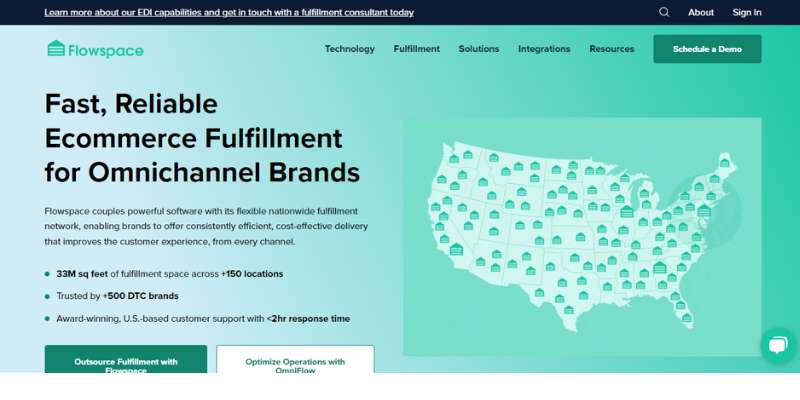
In order to support firms selling both online and offline, Flowspace combines potent software with its extensive fulfilment network. With the help of its OmniFlow software, businesses can govern e-commerce operations across all channels thanks to real-time visibility into inventory, orders, and fulfilment activity.
The firm provides on-demand warehousing and services that make next-day and two-day shipping more accessible to everyone from startups to Fortune 1000 companies. As Flowspace competes in an increasingly saturated market, the business has distinguished itself in the eyes of investors. Funding for Flowspace totals $15.5 million, including a $12 million Series A that closed last spring.
Nasty Gal

The founder of this startup, Sophia Amoruso, originally founded it as an eBay business, which later developed into a popular online destination for clothes. An online store called Nasty Gal offers unique, vintage apparel, shoes, and accessories. The products come from individual designers all throughout the world.
Nasty Gal has a sizable internet following and relied largely on social media to expand its business (including 1.2M Facebook likes and 217K Twitter followers). In three rounds, Nasty Gal secured $65M in fundraising, with the most recent round being led by Index Ventures in February of this year.
Ruth Health
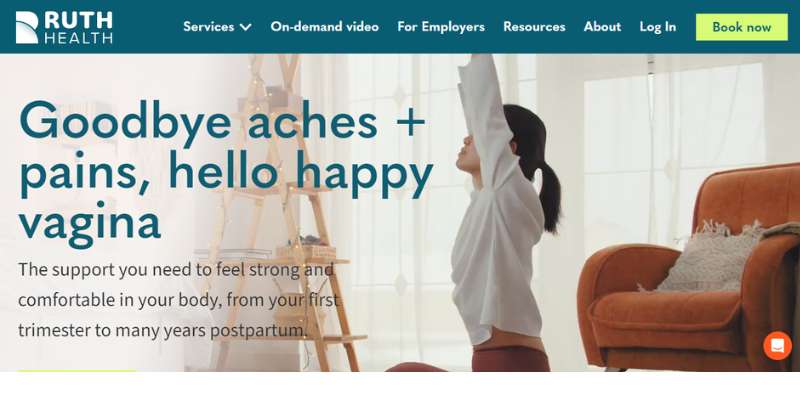
Ruth Health is a telehealth facility and a centre for women’s and prenatal care. It offers a variety of treatments, including as pelvic floor training and recovery, c-section recovery, and more, for those who are considering having children as well as expectant parents and postpartum parents.
During the course of four rounds of startup investment, the firm has raised a total of $3.1 million from 15 investors; the most recent round was in December 2020. Although Ruth Health is now only available in Los Angeles, they have plans to soon open offices in additional cities.
Epirus
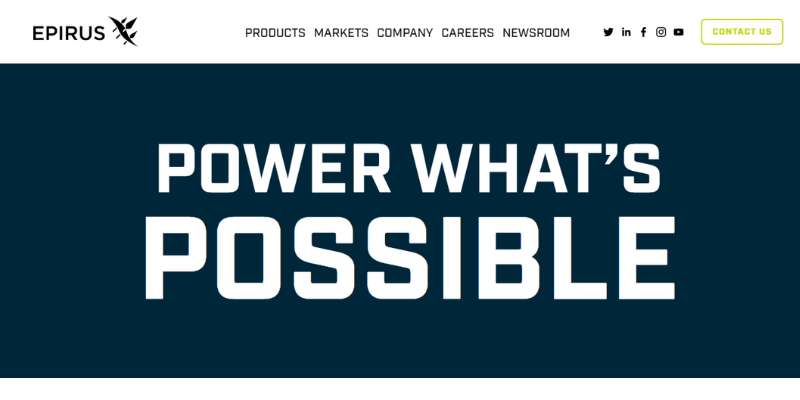
Epirus creates cutting-edge, highly effective microwave devices and solutions that reinvent entire sectors. They have developed directed energy systems that are more advanced than current ones thanks to their background in the defence sector. To speed up change for their customers, they are redefiniting contemporary power systems using this invention. Epirus has a main office in Los Angeles, California, and a branch office in Tysons, Virginia.
Blavity
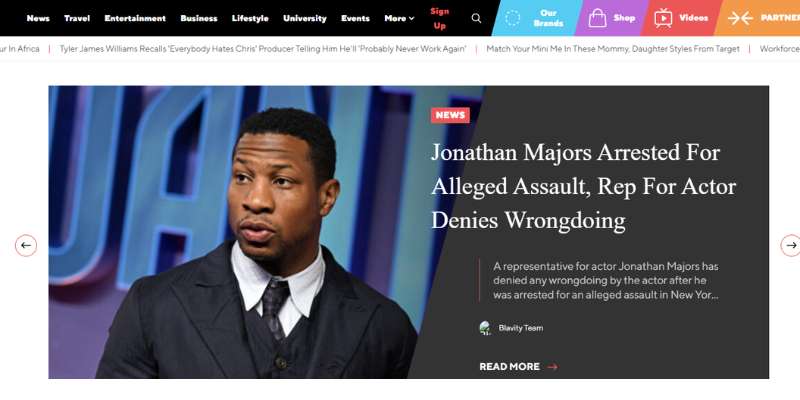
Blavity is the following startup on the list. This business uses social media and digital platforms to build a social network. Blavity has been praised for being both formed and operated by women and black/African American people. It specialises in working with black millennials.
The platform’s goals were to inspire innovation, amuse, and educate communities of colour. In 2014, Morgan DeBaun and Aaron Samuels, Jeff Nelson, and Jonathan Jackson co-founded Blavity. The start-up has between 51 and 100 employees, and its headquarters are in LA, California, in the United States. Thus far, six investment rounds totaling $9.4M have been completed, taking place between March 2016 and July 2018.
Endpoint
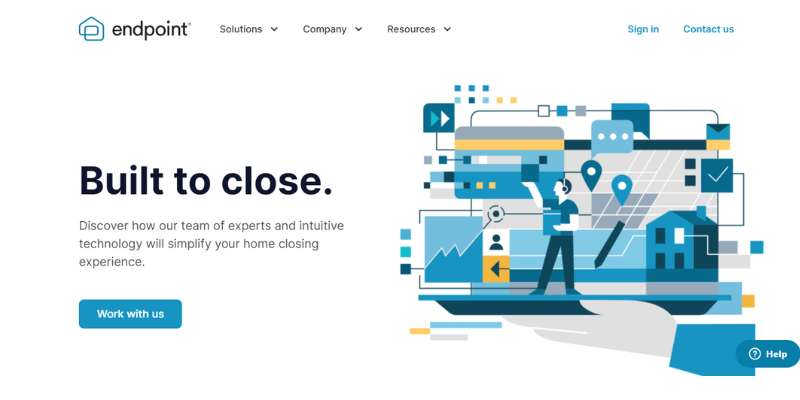
Endpoint is a digital title and escrow company that simplifies, expedites, and makes the house closing process visible for all parties. To make the home purchase process easier, its platform involves all parties—agents, buyers, and sellers—and provides convenient signing, secure funds transfer, and in-home notarization.
The platform’s goal is to simplify the closing process for homebuyers by giving them a single location to sign paperwork, send money, and post inquiries. First American, a major player in the real estate sector, spun off the business and has invested $30 million in it.
The Black Tux

Customers may rent a tux entirely online through The Black Tux, which also connects them with one of the best suit makers in the United States and sends them a measuring stick and instructions on how to take their measurements.
The Black Tux eliminates the middlemen, allowing clients to rent fashionable suits at a reasonable price starting at just $95 supplied to your home a full week before the event date (currently only in the US). Investors including First Round, Menlo Ventures, The Raine Group, Lerer Hippeau Ventures, and other VCs contributed $15M to the business over the course of three fundraising rounds.
Whatnot
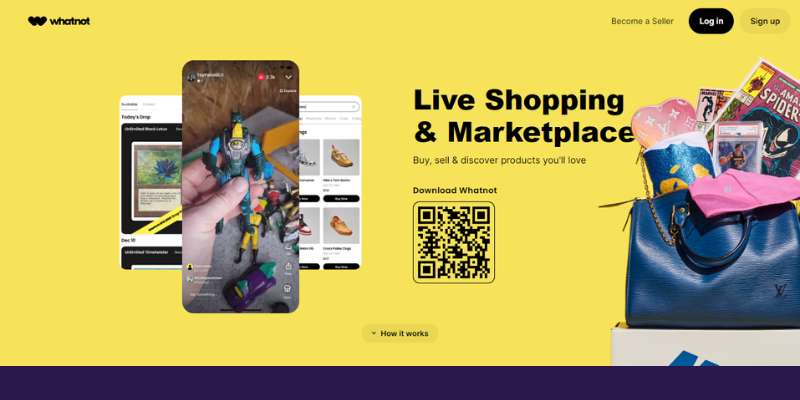
An online marketplace called Whatnot was created for those who want to purchase, sell, or trade collectibles and other stuff with other people who share their interests. On Whatnot, you may also go live to discuss your interests with other users or to display your collection.
There are two methods to buy things on Whatnot Marketplace: you can either click the “Buy Now” button on any product page to buy the item right away at that price, or you may click the “Make Offer” button if you want to barter and offer a lesser price than what is being offered right now. Since the firm was launched in 2020, WhatNot has raised an impressive $484.7 million from 27 investors in just four rounds of startup funding.
Swimply
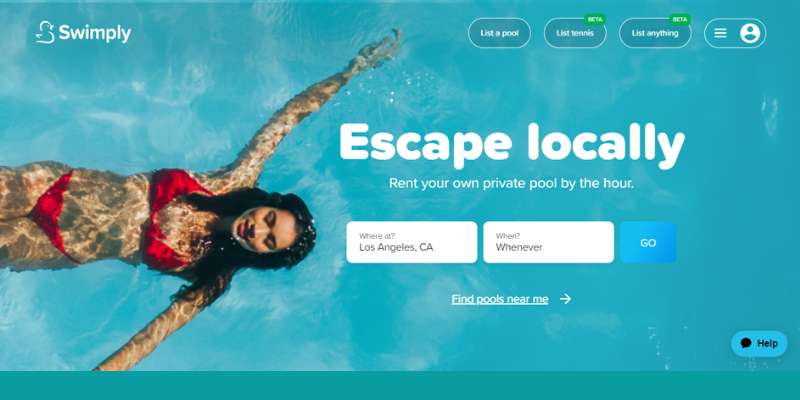
Homeowners can share their passion spaces with their local communities on Swimply, an online marketplace. The swimming pools they began with let them reach $20M+ in just 2 years, but this is just the beginning. They’re developing a brand-new class of local experiences. Think of AirBnB for amenities like kitchens, hot tubs, tennis and basketball courts, music and art studios, and more.
VideoAmp

The startup offers tools to monitor and improve the ecosystem specifically for the advertising sector. Due to its data-driven approach, the business can offer its clients the greatest advertising options across a variety of channels. In 2014, Dave Gullo and Ross McCray founded the company that would become known as VideoAmp.
It currently has a workforce of over 2501 and fewer than 500 workers, and its US headquarters are in Los Angeles, California. The amount of money raised by the company in total—$456.6M—is among the biggest; there have been six investment rounds.
Tapcart
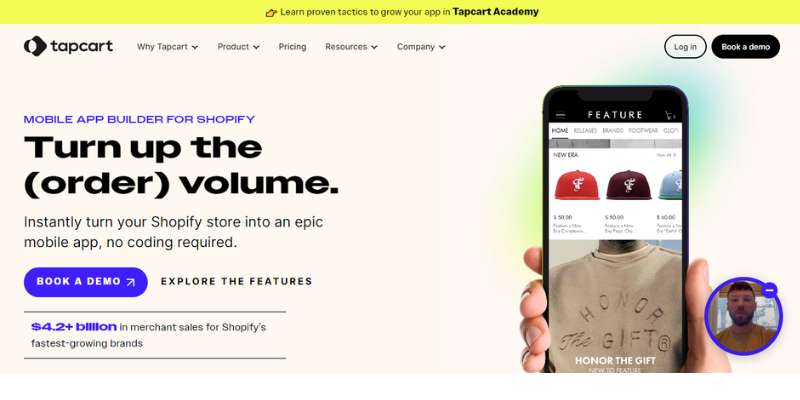
Several online shops lack apps for the valid explanation that they are challenging to create. Tapcart is not trying to impart coding or UX/UI design knowledge to the proprietors of these online stores. Instead, it has developed a framework that makes creating apps more like creating a MailChimp newsletter.
Anyone may easily create their own mobile app using the drag-and-drop interface of the browser-based Tapcart platform. Since its debut in 2017, Tapcart has received $5.2 million, and during that time, the business claims that over 7,000 Shopify stores have developed apps using its platform.
Stance
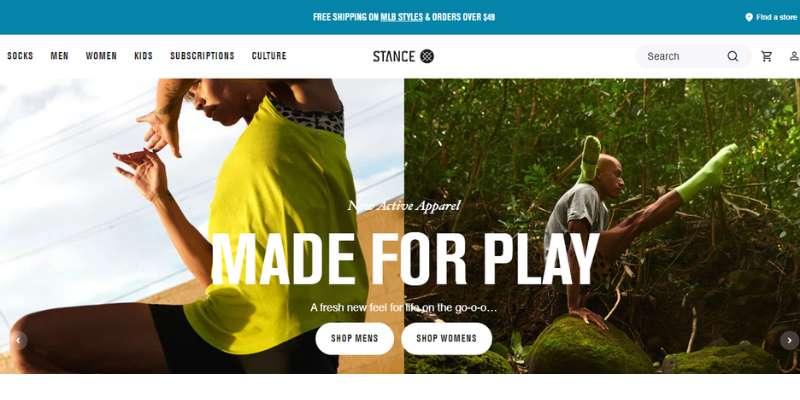
This startup that offers high-end socks and underwear has investors like Dwayne Wade, Will Smith, and Nas. On its website, Stance sells high-end socks priced between $12 and $18 per pair for the edgier fashion enthusiast. Instead of going the ecommerce way, Stance has established a brand for itself through partnerships with physical retailers like Nordstrom.
With 22 investors, including August Capital, Kleiner Perkins Caufield & Byers, Menlo Ventures, Shasta Ventures, Sherpa Capital, and others, Stance has raised $86M in total fundraising over 4 rounds, garnering a lot of attention.
Divergent 3D
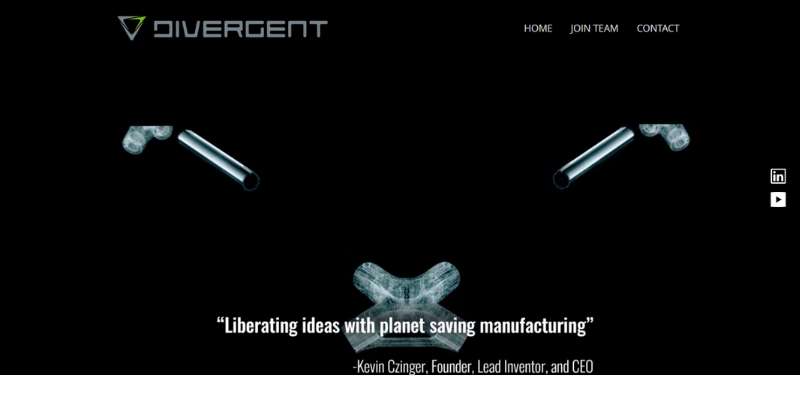
Divergent 3D specializes in 3D printing and wants to revolutionize the auto sector. Data is being used by Divergent Technologies, commonly known as Divergent 3D, to enhance and greener the auto production process. DAPS, or Divergent Adaptive Production System, is a software and hardware solution developed by Divergent 3D.
Divergent 3D, which Kevin Czinger launched in 2014 and has now expanded to employ over one hundred and fifty individuals, was founded. The headquarters are in California’s Greater Los Angeles Region. With a $248 million total investment raised throughout three funding rounds with thirteen investors, the funding rounds for this startup are also highly outstanding.
FAQ On Los Angeles Startups
What fuels the growth of Los Angeles startups?
The answer lies in the city’s diverse economy and rich cultural tapestry. The growth is driven by access to venture capital, a supportive entrepreneurial community, and an influx of tech talent from institutions like UCLA.
Plus, the lifestyle. Who wouldn’t want to innovate where the sun shines year-round?
How does Silicon Beach influence LA’s startup scene?
Silicon Beach is the cornerstone of LA’s tech prowess. This stretch is more than just a beach—it’s a hotspot where creativity meets business.
Startups here benefit from the proximity to big tech and media entities, fostering partnerships and opportunities in the tech ecosystem.
What sectors are booming within Los Angeles startups?
Tech’s the talk of the town but there’s more. From aerospace with giants like SpaceX to e-commerce hotshots and healthtech pioneers, LA startups are leading the charge across sectors.
Sustainability and fashion tech are also making waves, painting a diverse industry landscape.
Who are the key investors in Los Angeles startups?
Follow the money, and you’ll find a lineup of big names. Venture capital firms in LA are on the hunt for the next unicorn.
From well-known entities like Upfront Ventures to angel investors eager to back new ventures, the funding scene is as vibrant as the city itself.
What challenges do Los Angeles startups face?
It’s not all sunshine. There’s tough competition. Scaling in a crowded and high-cost market like Los Angeles means burning cash fast.
Plus, winning the talent war and navigating the regulatory landscape all stack as hurdles on the track to success.
How does the Los Angeles startup culture compare to Silicon Valley?
It’s like comparing surf to circuits. LA’s startup culture is defined by its cross-industry innovation and lifestyle-oriented approach, contrasting with Silicon Valley’s deep-rooted tech and software focus.
LA invites a blend of creativity and tech, manifesting a less conventional, more diverse entrepreneurial landscape.
What incubators and accelerators can startups join in LA?
In LA, support networks for startups are robust. SoFi Stadium’s not just for sports; it’s an event venue for immense networking opportunities, and entities like LA CleanTech Incubator foster sustainable innovation.
Bixel Exchange and other similar accelerators offer mentorship, funding guidance, and operational support to startups.
How can one find startup jobs in Los Angeles?
The hunt is half the hustle. Online job platforms buzz with listings, but networking at events like Los Angeles Tech Summit could also open doors to the startup world.
Joining LA’s vibrant startup community through co-working spaces often leads to serendipitous job discoveries.
Are there particular legal considerations for LA startups?
Absolutely, and it’s critical to tread carefully. Startups need to navigate a myriad of local and state regulations, from incorporating companies to protecting intellectual property.
Seeking specialized legal advice in Los Angeles is indispensable for anyone looking to set up shop in this competitive landscape.
What role does the City of Los Angeles play in supporting startups?
Think of the city as a silent co-founder. The local government, led by the Mayor’s office, plays a strategic role by offering incentives and resources to entrepreneurs.
It works hand in hand with organizations like the LA County Economic Development Corporation to bolster the city’s economic vitality through innovation.
Conclusion
Stepping back, taking in the panorama of Los Angeles startups, one thing’s clear as the California sky: LA’s energy is infectious, a blend of creativity and ambition that fuels not just startups but the very spirit of innovation.
- The Silicon Beach effect reverberates across sectors, echoing through the bustling corridors of tech, entertainment, aerospace, and beyond.
- The drive in this city is palpable, each startup a world of possibilities, each entrepreneur a storyteller charting new territories in business sagas.
- From the avid angel investors to the dynamic co-working spaces, LA wraps its arms around its trailblazers, whispering the promise of opportunity at every palm-tree-lined street corner.
With heads held high and eyes to the horizon, Los Angeles startups are not just participating in the global market. They’re leading the charge – one disruptor, one innovator, one fearless dreamer at a time. It’s not goodbye. It’s see you on the flip side, where the dreams are as expansive as the Pacific.
If you liked this article about Los Angeles startups, you should check out this article about Seattle startups.
There are also similar articles discussing Atlanta startups, Austin startups, Detroit startups, and Bay Area startups.
And let’s not forget about articles on Boston startups, New York City startups, Israel startups, and Cincinnati startups.





